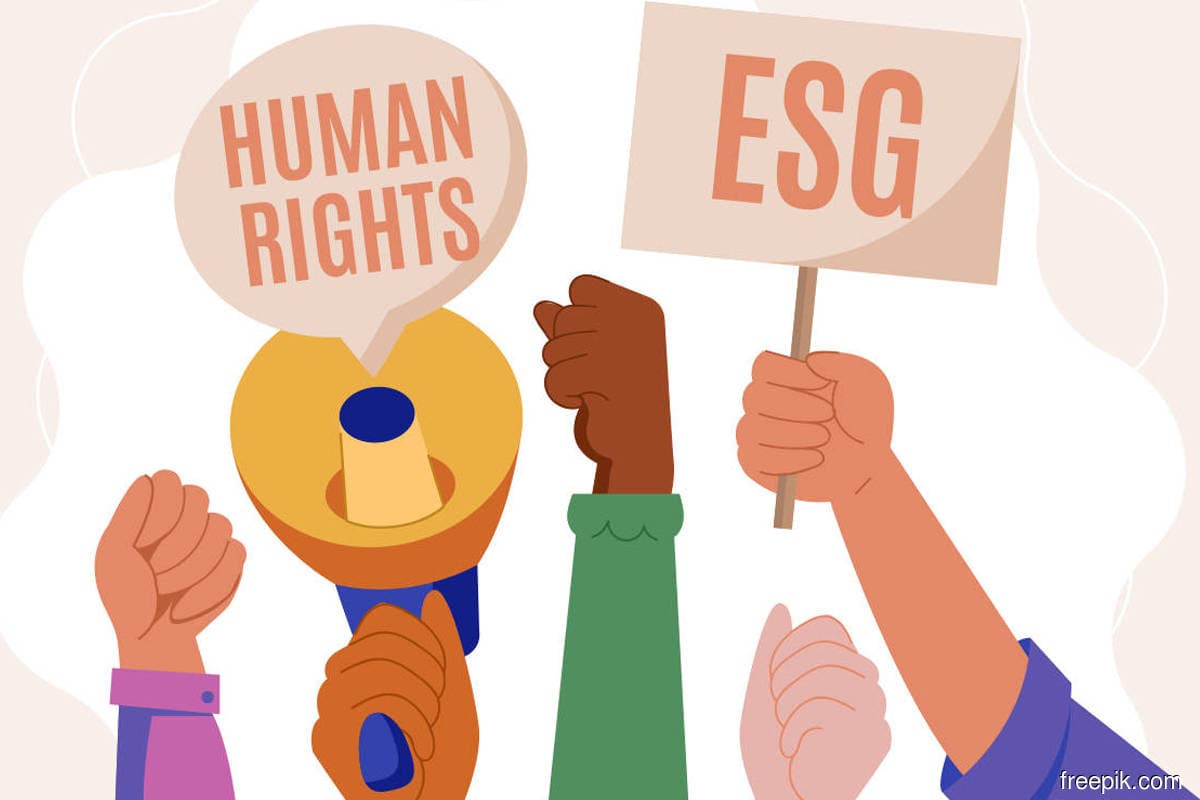
This article first appeared in The Edge Malaysia Weekly on January 23, 2023 - January 29, 2023
The popularity of ESG (environmental, social and governance) is a positive development, as regulators, companies and institutions recognise that business must not be conducted at the expense of the environment, workers and good governance. But how meaningful are the increasing awards for ESG achievements, penalties for non-compliance, and reporting standards?
Can ESG achieve what it is framed to do, which is to sustain us on this planet in a just manner? In the first part of my commentary, I will address this from two angles.
1. The roots of ESG are found essentially in human rights
In 1948, the Universal Declaration of Human Rights (UDHR) was proclaimed as the common standard for all people and all nations. Everyone is entitled to inalienable rights, irrespective of race, colour, religion, sex, language, political opinion, national or social origin, property, birth or status.
Not only were civil and political rights to be guaranteed by governments, economic rights — such as rights to just and favourable conditions of work, equal pay for equal work, and social security — were agreed upon as fundamental to human dignity.
The modern human rights movement then progressively evolved to encompass the right to a safe, healthy and clean environment, and included good governance as part of its fight against impunity and poverty.
In 2015, the 17 Sustainable Development Goals (SDGs) called for an end to poverty, hunger and inequality, setting targets to achieve gender equality, climate justice, as well as strong and just institutions, and deliver clean water and sanitation, decent work and economic growth, among others.
Each goal can be traced to a human rights convention. Without saying as much, the goals of human rights were repackaged through the SDGs to gain greater acceptance among non-state actors and corporations.
This is why some equate ESG standards to the “business and human rights” (BHR) principles found in the United Nations Guiding Principles on Business and Human Rights. But reporting guidelines that say the “S” in ESG comprises only a narrow subcategory of human rights or that labour rights only is human rights is not entirely accurate.
ESG, in actuality, calls for a rights-based approach that envisions the alignment of policy and business with scientific evidence, and centres on non-discrimination, accountability and informed participation, with special attention to the needs of vulnerable groups.
The growing toxification of the planet, which disproportionally affects already-marginalised people and threatens the human rights of the future generation, demands that the way of doing business be overhauled.
To miss the human rights perspective and elements in ESG — or to tiptoe around human rights — will be to miss the conceptual motivation of the ESG initiative altogether.
2. ESG-BHR limits what businesses can do but it does not license or exempt actors from doing more of the same
After the world witnessed the atrocities committed by the Nazis in World War II, human rights were initially aimed at limiting what governments could do to their citizens and those outside their national territories.
In a similar vein, ESG-BHR targets non-state actors, and must be recognised as a form of limitation on what companies can do as part of the bigger picture of what they ought to do in terms of respecting, promoting and protecting human rights.
ESG-BHR is neither a licence to act as if it is “business as usual” nor an exemption to do more harm. It is not a carte blanche to act in ways seeking to gain a step ahead of fellow competitors for financial gain.
This is why some have sounded the alarm about, for example, the potentially deleterious effects of carbon trading. In the name of carbon mitigation and sustainability, activists have argued how companies can buy themselves out of their continued practices of polluting the environment. Or when forests inhabited by indigenous communities are taken over by private companies and controlled without the communities’ free, prior and informed consent, purportedly to restore the environment.
Even as it is important to have ESG-BHR spoken about through the business case of “risks”, we will not see business practices change if we do not implant principles in a mandatory and legal form.
Suppose the question of how the risks are managed is the sole question. In that case, corporations will continue business as usual if they think they can manage the business risks and comply with the rudimentary requirements of reporting, for as long as profits are generated.
Edmund Bon is a practising lawyer at AmerBon, Advocates. He has been in the business of human rights for 25 years. Recently, he led a team of experts to publish Business and Human Rights in Southeast Asia: A Practitioner's GuideKit for SMEs on Human Rights Compliance regarding the Environment and Labour.
Save by subscribing to us for your print and/or digital copy.
P/S: The Edge is also available on Apple's App Store and Android's Google Play.
